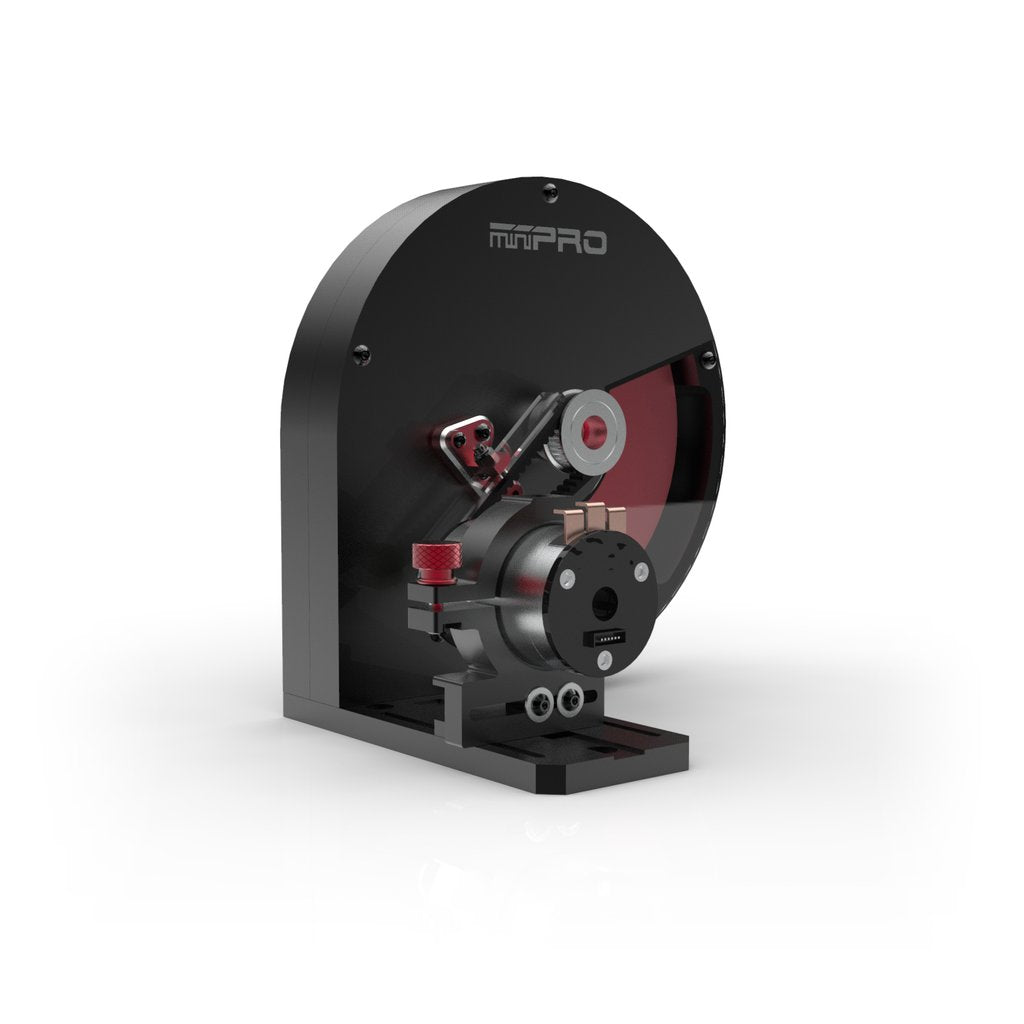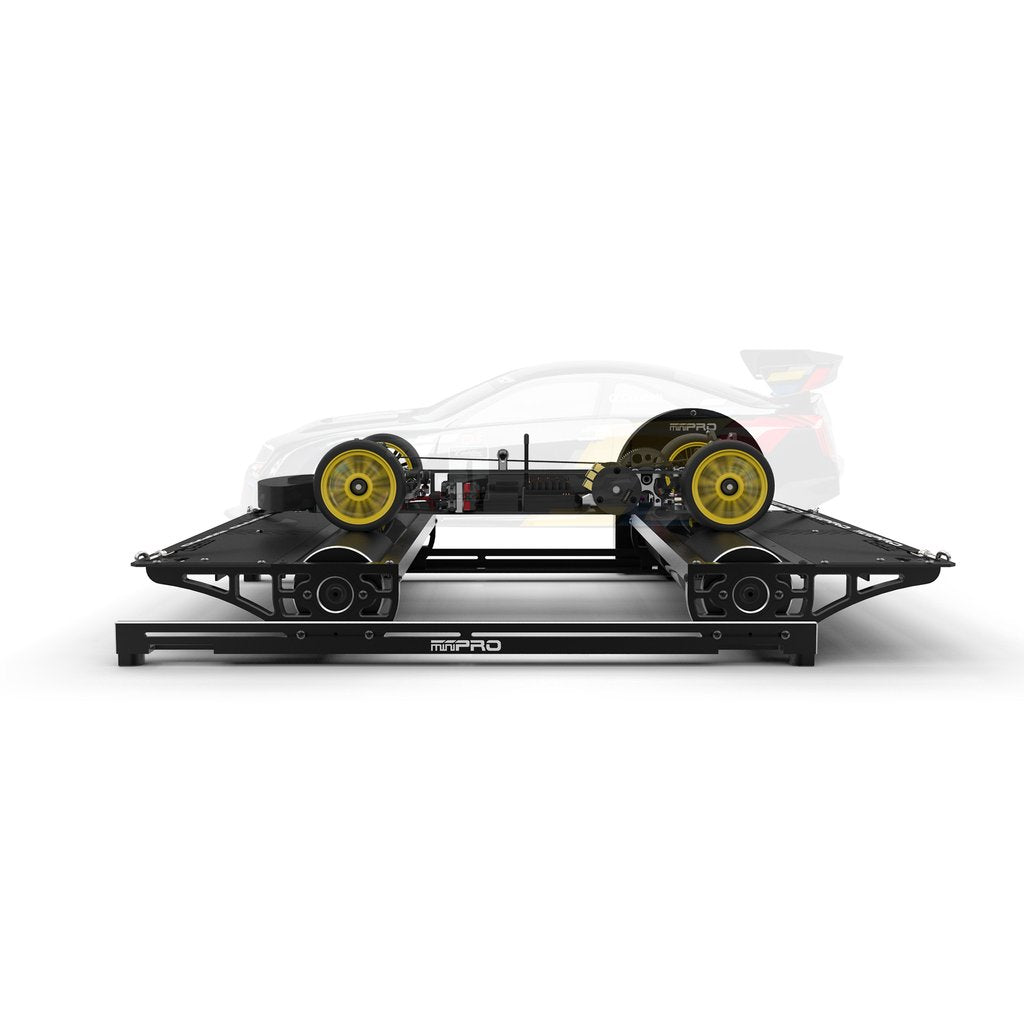The MINIPRO® Electric Dyno offers many advantages when it comes to design and tuning electric motors. It's convenient for many markets, robots, radio control industry, medical, power equipment, and any small-sized motor applications. It's small in size and economic to fit the budget of many customers. This is an Inertia type Dyno, meaning it tested motor accelerates a flywheel to measure both power and torque. That means, repeated test results one after another. It's also capable of testing any type of small motor by selecting the right configuration of pulley, motor holder, and flywheel. The software is easy to use, and no previous technical...






